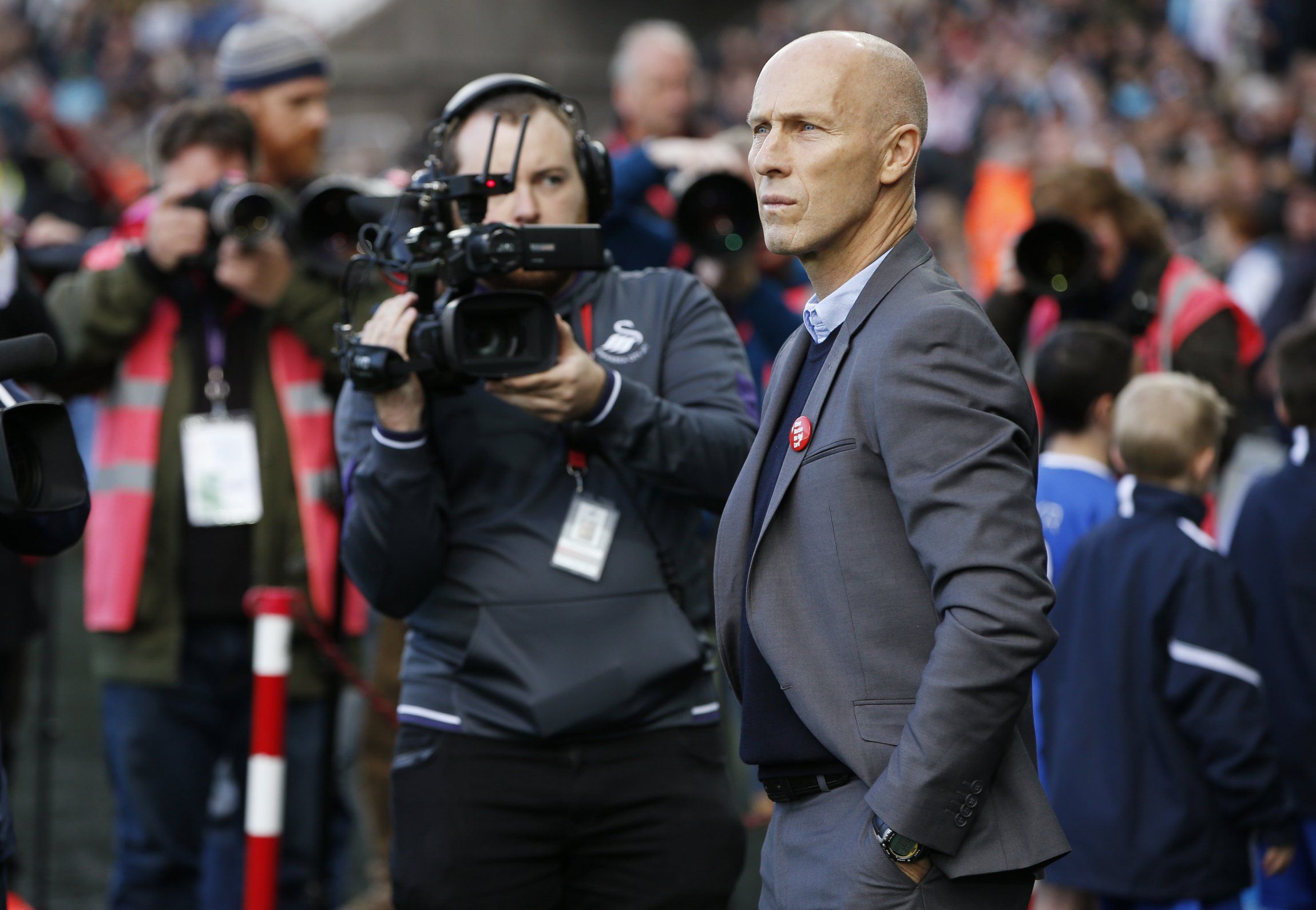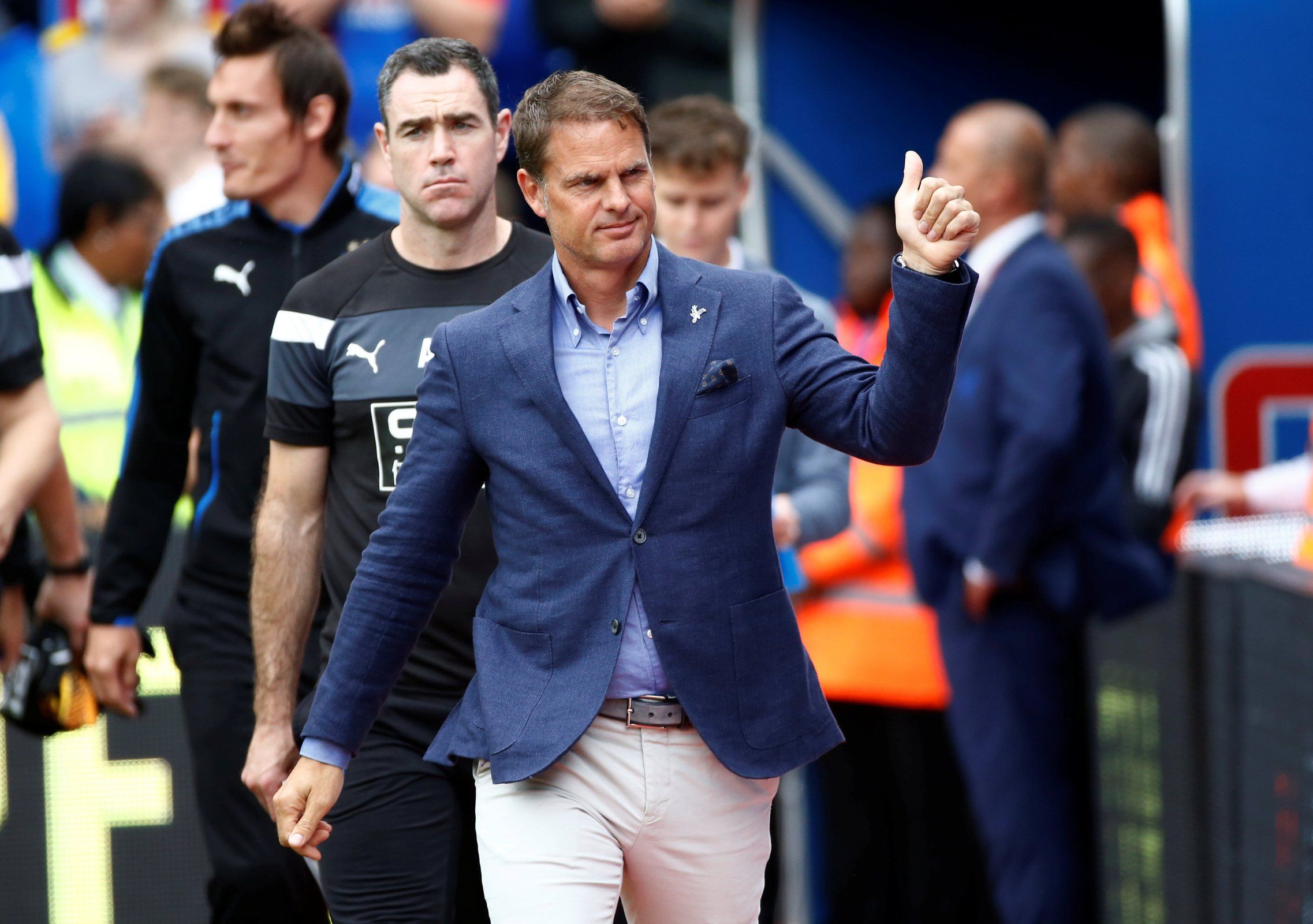A common criticism of modern football is that too many clubs fire their managers at the first hint of crisis and twenty-six sackings in the Premier League alone since June 2015 certainly suggests that patience is often thin on the ground in chairmens' offices.
Worse yet it is a trend that only appears to be escalating with ten gaffers already given the boot this term compared to eight throughout the entirety of last season. In 2014/15 there were ‘only’ seven picking up their P45 and claiming it was by mutual consent to save face.
From this quarter of a century of dismissals there have naturally been examples where struggle had become set in stone and the manager’s position had reached the point of being irreparable.
Bob Bradley’s disastrous stint at Swansea springs most readily to mind here, an ill-fit that was clearly doomed to fail from the moment the American arrived at the Liberty Stadium and began talking up a C.V that frankly wasn’t that impressive, besides its length. Eleven games and seven defeats later and he was gone, replaced by Paul Clement and with the benefit of the ‘new manager bounce’ the Swans won half of their next ten games. By the season’s end they were seven points clear of a relegation plight they previously seemed fated to endure.
There is significant evidence to support the claim that a ‘new manager bounce’ exists, not least common sense in that an incoming coach embodies a fresh start from scratch while all of the reasons for failure symbolically leave with the old one. It can’t be a coincidence that so often players are transformed in form as they seek to impress their new boss and teams – in general, certainly not all – enjoy an upsurge in results.
Yet according to two reports, that is precisely what this perceived improvement is down to – pure coincidence.
The most recent research conducted by the 21st Club concluded that 75% of a managerial bounce is down to luck, with the remaining 25% attributed to fixtures and players returning from injury. In 2004 meanwhile, Dutch economist Dr Bas Ter Weel published his findings from 18 years of analysing the Eredivisie that suggested clubs that persisted with an under-performing manager and clubs that did not experienced almost identical patterns of improvements and decline.
Balancing this out, however, are indisputable stats in addition to that indefinable gut instinct that tells you the phenomenon is very much real. If your team is due to play a side stuck in crisis mode you’re relatively confident. If the club in question then sacks the manager early in the week and immediately appoints a replacement your heart sinks. There must be a reason for that and the reason illustrates that even if a ‘new manager bounce’ is exaggerated, we all at least believe that it exists.
Besides, the numbers don’t lie. The clubs who sought a new direction last term accumulatively shot up twelve places in the Premier League by May from their positions at the time of each sacking. This time out the rewards for uttering Alan Sugar’s catchphrase has been even more dramatic; Crystal Palace are enjoying a venerable rebirth since replacing Frank De Boer with the sensible input of Roy Hodgson. Elsewhere, a strange synchronicity meant that three clubs languished in 18th spot over a period of one month last autumn, with all three firing their coaches in that position. That trio – Leicester, Everton and West Ham – now reside in 7th, 9th and 11th respectively.
However, if there is indeed merit in starting afresh, that only leads to another line of enquiry, namely whether it is the right course of action for the long term. It is all very well pressing the panic button and enjoying a reversal of fortunes but if it’s only a temporary respite, then maybe yer da is right to mourn for the days when Sir Alex and others were given time to make mistakes and mould a team in their image. After all, he does have a point – the average period of employment in the top flight is a staggeringly slim 1.2 years. After all too a bounce by its very definition is going to come back down again.
Here we return to where we started: at the Liberty Stadium in South Wales. Because for all of Paul Clement’s impetus post-Bradley, 2017/18 saw history repeating itself and Swansea came out of the blocks in slothenly, inept fashion. They are presently propping the rest of the league up.
Perhaps, then, the answer lies not in relying on an injection of new blood every time crisis looms but rather a club taking the time and calmness to find the right man and entrusting in him to eventually find the magic formula.
While we’re waiting for that to happen, we may as well look to the skies for flying pigs.
https://video.footballfancast.com/video-2015/fplshow25.mp4



